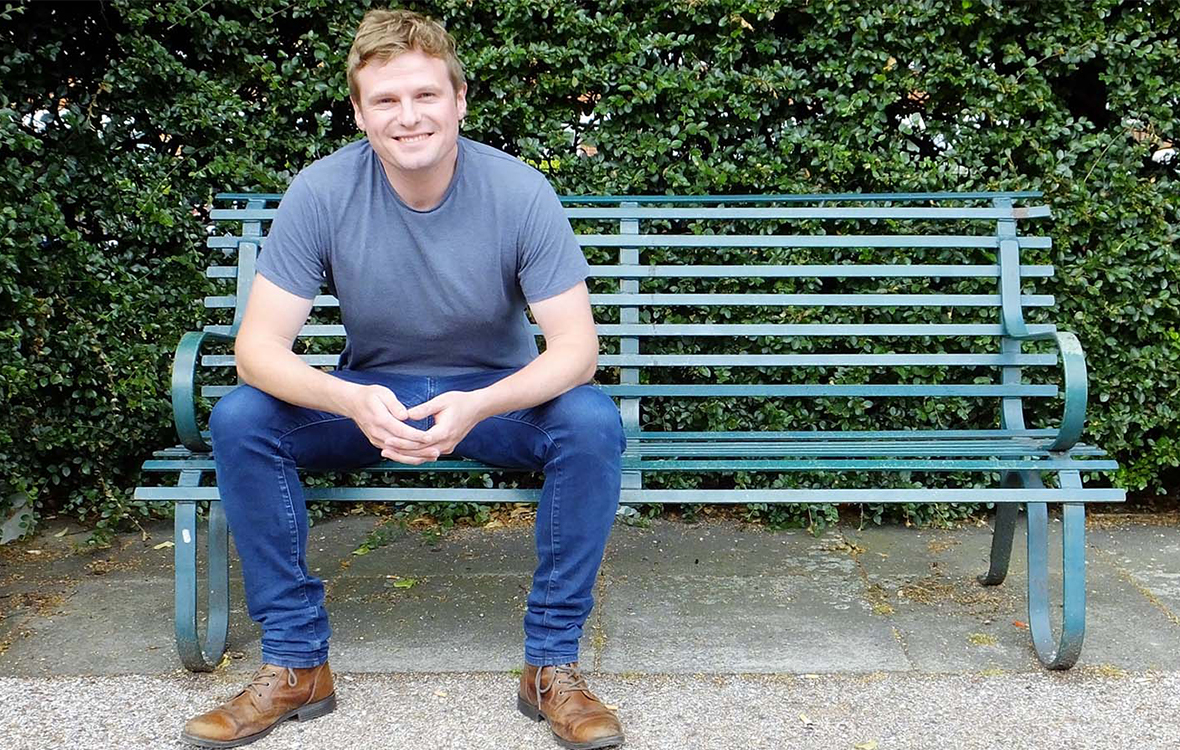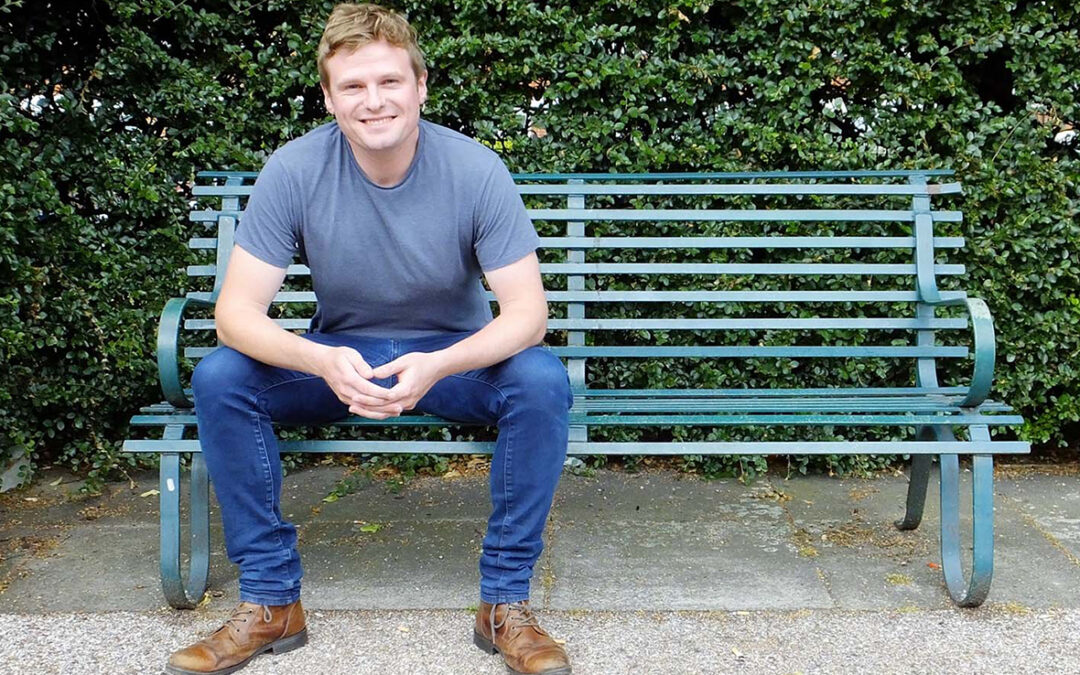Q&A with Jim Gore, DipWSET and Founder of the Global Wine Academy
As one advances through the WSET courses, culminating in the Level 4 Diploma and opening the door for aspiring candidates to pursue the Master of Wine, the curriculum becomes less exact. At the Diploma level, students are expected to create their own study plan to complement the WSET curriculum in order to pass the exams. Candidates for the MW program must go one step further, developing entirely independent study plans that guide their course of study for one of the most rigorous wine exams. Luckily, there are organizations who can help.

Jim Gore of Global Wine Academy
Global Wine Academy (GWA), founded by Jim Gore, DipWSET is one such entity that operates on a global scale. We got to sit down with Jim to talk about GWA and about the changing landscape of wine education.
GE: What inspired you to start the Global Wine Academy? What was the initial aim? Now a couple of years in, has that aim shifted at all?
JG: I wanted a change in lifestyle first and foremost – more flexibility. I also wanted to see what the world of wine education was like outside of WSET School London.
The program has changed monumentally over the past few years, particularly the last few months where we have gone completely online. This has allowed me to teach students who study outside of the UK or are studying online. I feel I’m now addicted to the variety and diversity this style of education offers and love getting to know new students so much that even when we do go back in the classroom, I think that will only be a minor part of my business.
GE: From your perspective, do students’ needs differ according to which wine program or level they are enrolled in e.g. WSET vs. MW, WSET Level 3 vs. Diploma)? How so, and how does the Global Wine Academy tailor their offerings to meet their specific needs?
JG: There is a genuine simple thread across all of the courses that we run: we look to build skills in students rather than give them answers. With that in mind, every course or session we run is split up into manageable chunks that are then worked on session after session, building long-lasting and transferable skills as we go.
The courses are always based around the assessment criteria for each qualification rather than the ‘topics.’ For example, our Online Theory Course runs in partnership with Enjoy Discovering Wine (Diploma APP), who uses a concept called ‘Flipped learning’ where we get the students to study and research in their own time and then we work on the more difficult skills together as a group. Too often you find that lectures are just visual versions of the textbook and the hardest skills to refine (analysis, application, and evaluation) are tested simply through mock exams. We have a strong view that as educators we must guide students through these difficult parts.
The MW tastings that we offer (and our online version that we are soon to be launching) focuses on the same process: we train the students how to answer the questions correctly and accurately. Feedback is essential and something we have been experimenting with through our courses. Students will often get to see each other’s feedback as well as different versions of how to answer the same question. The higher-level qualifications by nature offer many different ways of answering a question so facilitating an environment where students can share and continue to learn once they have left the course is essential. A full understanding of the feedback system is essential; we like to turn our students into mini-educators who are confident enough to spot mistakes in the work of others.
GE: How have you adapted programming since Covid-19 hit back in March? Will some of these changes continue even as markets open back up, or do you hope that everything will go back to normal?
JG: We now use WhatsApp and Google Docs in many of our courses as communication tools and platforms for collaborative work. One of our Theory groups that included students from the UK, Spain, France, Italy, Hong Kong, Taiwan, Australia, and New Zealand have continued to meet each week and have formed a phenomenal post-course study group. We still keep an eye on them through Google Docs and on WhatsApp, but frankly they now have the skills to create questions themselves and test each other. We are thrilled with it.
We also now use a company to repackage wines in smaller formats so that students can taste at home.
GE: Looking at wine education overall, and many wine courses going virtual, do you think the structure will look a lot different in a post-Covid world? What schools/academies/organizations in your opinion have really done things right in coping with the current environment?
JG: 67 Pall Mall comes to mind as somewhere that has really cornered the market for wine tastings, charging a small fee to watch or treat yourself and order the wines along with some phenomenal speakers. It really is the palace for wine geeks on any budget.
There are so many examples of where it is done well and that is what I have been seeing mostly, but some places have not really understood the limitations of online. Too many institutions are running day-long courses with zero or no interactive elements. With the online platform, there are quiz functions, breakout rooms, and options to show videos and visuals more clearly and, most importantly, the ability to collaborate across different time-zones – so it is a shame when it is just a carbon copy of a classroom session.
GE: As the name suggests, the Global Wine Academy has international reach. Which countries do you currently offer your services in, and do you hope to expand into new markets in the future?
JG: We deliver wine to UK and Europe, but would love to experiment further abroad at some point. We have had some success with students ordering wines locally that are similar to the ones we taste. This isn’t perfect for fine-tuning calibration, but just as good for examination technique. This year we have had students from: UK, Sweden, Holland, France, Spain, Italy, Switzerland, Hong Kong, Taiwan, India, Australia, New Zealand, and both coasts of USA.
I’ve also adapted one of my courses working with AWSEC in Hong Kong where we have done tastings together virtually. That has been a great to reach new audiences through simple collaboration.
GE: Any other comments you would like to share?
JG: Our latest venture is the Instagram Live Calibration Wine Fair. 24 wines are shipped in small test tubes to students and we go through them all in one day! Many students watched and then ordered afterwards, others tasted along using the videos on IGTV over the course of a week. Moving forward, we are looking to expand this model over a couple of days, including some guest speakers. All the videos are available on our IGTV channel, along with some student-led calibration videos that we did over the summer.

